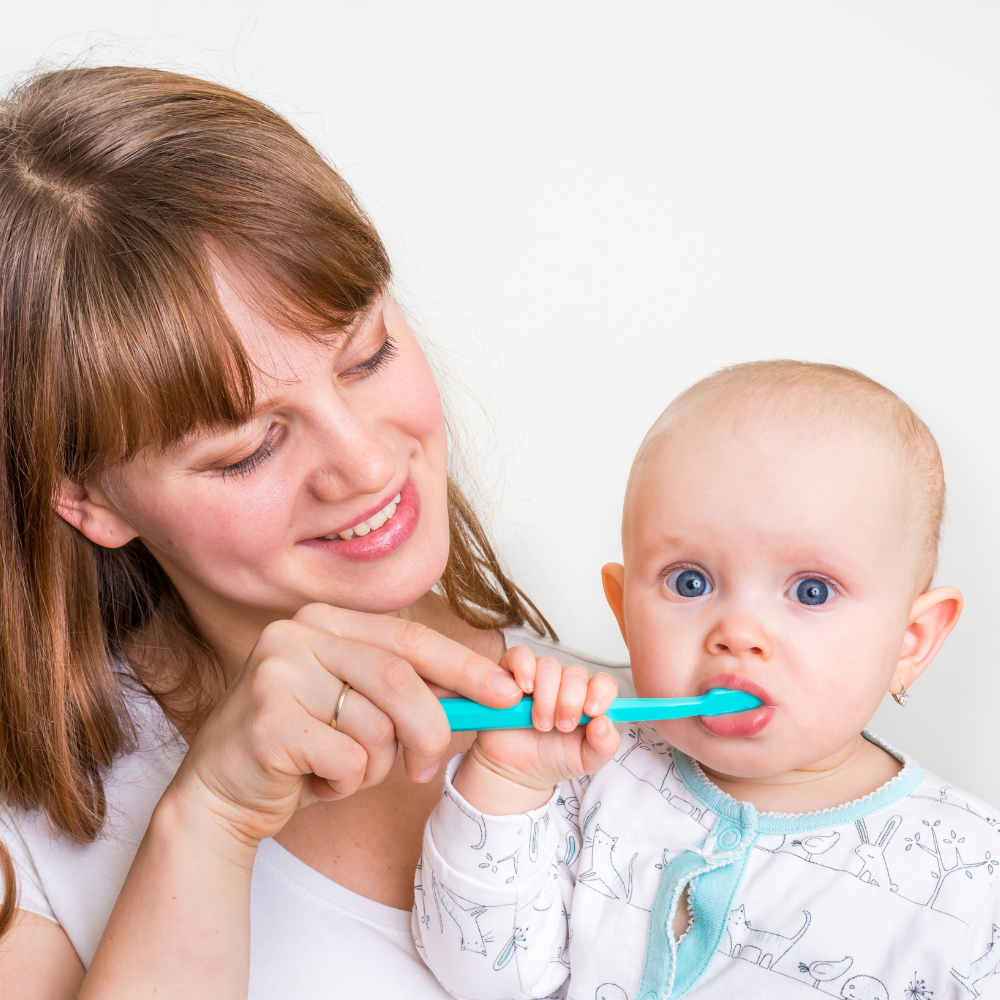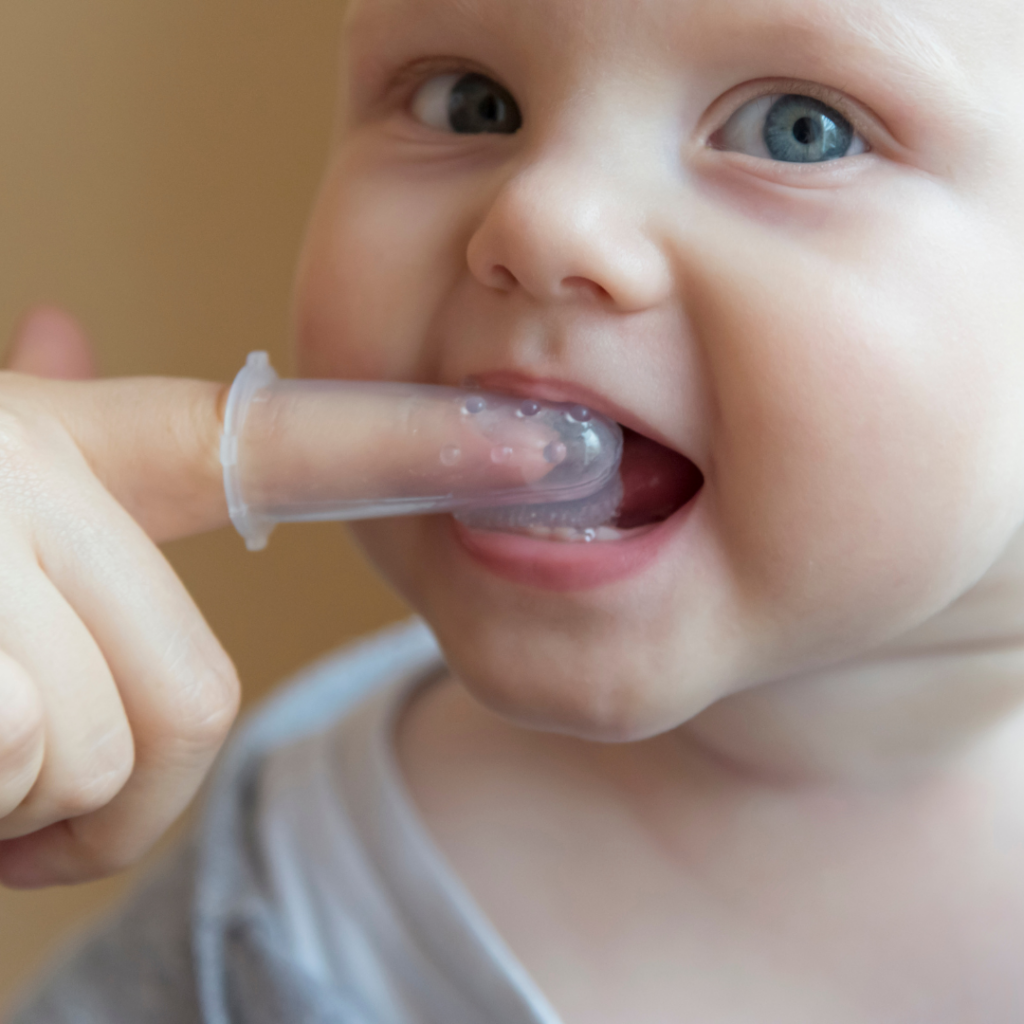Sometimes parents think that because baby teeth are temporary, they don’t need much attention. However, baby teeth are crucial for a child’s overall health and development. In this blog post, we will explore why baby teeth matter and how you can keep them healthy.
Understanding the significance of these tiny teeth and the best practices for their care will set the foundation for a lifetime of good oral health.
Why Baby Teeth Matter
Baby teeth, also known as primary teeth, play several important roles in a child’s development:
- Chewing and Nutrition: Healthy baby teeth are essential for proper chewing, which affects a child’s nutrition. If a child has trouble chewing due to cavities or other dental issues, it can lead to poor dietary choices and nutritional deficiencies.
- Speech Development: Baby teeth are important for the development of clear speech. Missing or damaged teeth can affect a child’s ability to articulate words correctly.
- Holding Space for Permanent Teeth: Baby teeth act as placeholders for permanent teeth, guiding them into their correct positions. If baby teeth are lost too early, it can lead to crowding and alignment issues with the permanent teeth.
- Facial Structure: Baby teeth help maintain the structure of a child’s face. Missing teeth can affect jaw development and lead to changes in facial appearance.
Consequences of Neglect
Neglecting the care of baby teeth can lead to several problems:
- Cavities and Decay: Cavities in baby teeth can cause pain and discomfort. If left untreated, they can lead to infections and abscesses, which may affect the developing permanent teeth underneath.
- Premature Tooth Loss: If baby teeth are lost prematurely due to decay or injury, it can disrupt the alignment of the permanent teeth, leading to orthodontic problems.
- Impact on Permanent Teeth: Infections in baby teeth can spread to the permanent teeth, affecting their development and health.
- Speech and Chewing Issues: Poor dental health can affect a child’s ability to chew food properly and develop clear speech, impacting their overall quality of life.
How to Keep Baby Teeth Healthy

Establish Good Oral Hygiene Habits
Good oral hygiene habits should start early. Here are some tips for keeping your child’s baby teeth healthy:
- Start Early: Begin cleaning your baby’s gums even before the first tooth appears. Use a soft, damp cloth to wipe the gums after feedings. Once the first tooth emerges, use a small, soft-bristled toothbrush with water to clean it.
- Ensure Proper Brushing: Brush your child’s teeth twice a day using fluoride toothpaste. For children under three, use a smear of toothpaste the size of a grain of rice. For children aged three to six, use a pea-sized amount of toothpaste. Supervise brushing until your child can do it independently, usually around age six.
- Ensure Proper Flossing: Begin flossing your child’s teeth as soon as they have two teeth that touch. Flossing helps remove food particles and plaque between teeth that a toothbrush can’t reach.
- Schedule Regular Dental Checkups: Schedule your child’s first dental visit by their first birthday, or when the first tooth emerges. Regular checkups help monitor the health of your child’s teeth and catch any issues early.
Promote Healthy Eating Habits
Diet plays a significant role in maintaining healthy teeth. Here are some dietary tips to keep your child’s teeth strong:
- Limit Sugary Foods and Drinks: Sugary foods and drinks can lead to cavities. Avoid giving your child sugary snacks, sodas, and juices. Instead, offer water, milk, and healthy snacks like fruits, vegetables, and cheese.
- Encourage Healthy Snacks: Encourage healthy snacks that promote dental health. Crunchy fruits and vegetables like apples and carrots can help clean teeth and gums.
- Promote a Balanced Diet: Ensure your child has a balanced diet rich in vitamins and minerals, especially calcium and vitamin D, which are essential for strong teeth and bones.
Avoid Harmful Habits
Certain habits can negatively impact your child’s dental health. Here are some habits to avoid:
- Thumb-Sucking: Prolonged thumb-sucking can lead to misalignment of teeth and jaw problems. Encourage your child to stop thumb-sucking by age three.
- Pacifier Use: Extended use of pacifiers can also affect the alignment of teeth. Try to wean your child off pacifiers by age two.
- Bottle at Bedtime: Avoid putting your child to bed with a bottle of milk or juice. The sugars in these liquids can pool around the teeth and lead to cavities. If a bedtime bottle is necessary, fill it with water instead.
Use Fluoride Treatments
Fluoride is a mineral that helps strengthen tooth enamel and prevent cavities. Here are some ways to ensure your child gets enough fluoride:
- Fluoride Toothpaste: Use fluoride toothpaste when brushing your child’s teeth. Fluoride helps strengthen the enamel and protect against decay. Look for a toothpaste that’s been approved by the American Dental Association (ADA).
- Fluoride Water: Check if your local water supply is fluoridated. If not, talk to your dentist about fluoride supplements.
- Professional Fluoride Treatments: Your dentist may recommend professional fluoride treatments during dental visits to provide additional protection against cavities.
When to Visit the Dentist
First Dental Visit
The American Academy of Pediatric Dentistry (AAPD) recommends that children visit the dentist by their first birthday or when the first baby tooth emerges. The first visit helps establish a dental home and allows the dentist to check for any early signs of dental problems.
Regular Checkups
Regular dental checkups are crucial for maintaining your child’s oral health. The AAPD recommends dental visits every six months, but your dentist may suggest a different schedule based on your child’s needs.
Signs of Dental Problems

Be aware of the signs that indicate your child may need a dental visit sooner than their scheduled checkup:
- Tooth Pain: If your child complains of tooth pain (or seems bothered by tooth pain), it could indicate a cavity or infection that needs immediate attention.
- Swollen Gums: Swollen, red, or bleeding gums can indicate gum disease or infection.
- White or Brown Spots on Teeth: These spots can indicate early signs of tooth decay.
- Loose Teeth: While it is normal for children to lose baby teeth, it may be due to injury or decay if a tooth becomes loose prematurely.
Teaching Children About Dental Care
Make Brushing Fun
Encouraging children to brush their teeth can be challenging, but making it fun can help:
- Choose a Fun Toothbrush: Let your child pick out a toothbrush with their favorite character or color.
- Play Music: Play a two-minute song while brushing to make it more enjoyable and ensure they brush for the recommended time.
- Use Apps: Many apps are designed to make brushing fun by providing games and timers to keep kids engaged.
Use Educational Activities
Teach your child about the importance of dental care through educational activities:
- Read Books and Watch Videos: Read books and watch videos about dental care to help your child understand why it’s important.
- Use Role-Playing: Role-play a visit to the dentist to familiarize your child with what to expect during a dental visit.
- Play Interactive Games: Use interactive games and activities that teach children about dental hygiene in a fun and engaging way.
Give Positive Reinforcement
Use positive reinforcement to encourage good dental habits:
- Praise and Reward: Praise your child for brushing and flossing regularly. Consider using a reward chart to track their progress and reward them with a small treat or extra playtime.
- Lead by Example: Set a good example by brushing and flossing your teeth regularly. Children are more likely to follow good habits if they see their parents practicing them.
Ready to begin your child’s dental journey? Give us a call!
At Eastside Children’s Dentistry, we are committed to providing the best care for your child’s dental health. Dr. Menon and our experienced team in Chagrin Falls are here to support you and your child every step of the way. Schedule an appointment with us today to ensure your child’s teeth are healthy and strong. Let’s work together to give your child a bright and healthy smile that lasts a lifetime. Contact us now to book an appointment!
